Publications
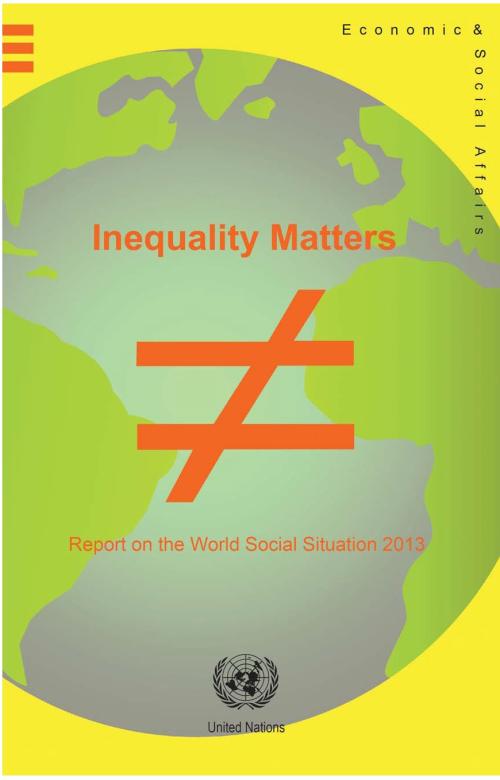
The 2013 Report on World Social Situation: Inequality Matters brings attention to inequality, with a particular focus on policies and the disadvantaged social groups. Tracing the recent trends and the consequences of inequality, the Report shows that inequality matters not only for people living in poverty, but also for the overall wellbeing of society at large.
The Report further demonstrates that growing inequality is neither destiny nor a necessary price to pay for economic growth. It explains the consequences of high inequality and further examines the experience of some countries that have defied the general trend and have managed to reduce inequality, showing that…
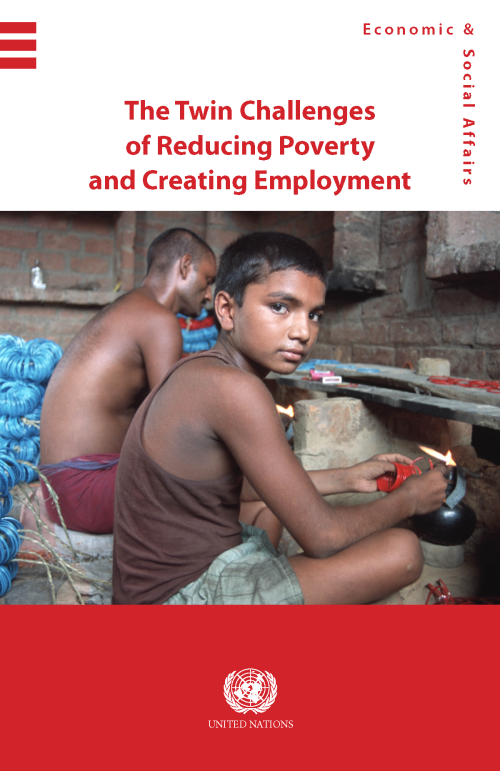
This E-publication is based on papers presented at two Expert Group Meetings (jointly organized by DSPD and the ILO) that brought together specialists to undertake a review of progress in eradicating poverty and to analyse policy responses to the global jobs crisis in different countries and regions of the world. It calls for a reorientation of macroeconomic policies from the current heavy emphasis on short-term stability to the promotion of sustained, inclusive and equitable growth. It stresses the need for the integration of social and economic policies to enable the attainment of people-centred development outcomes.
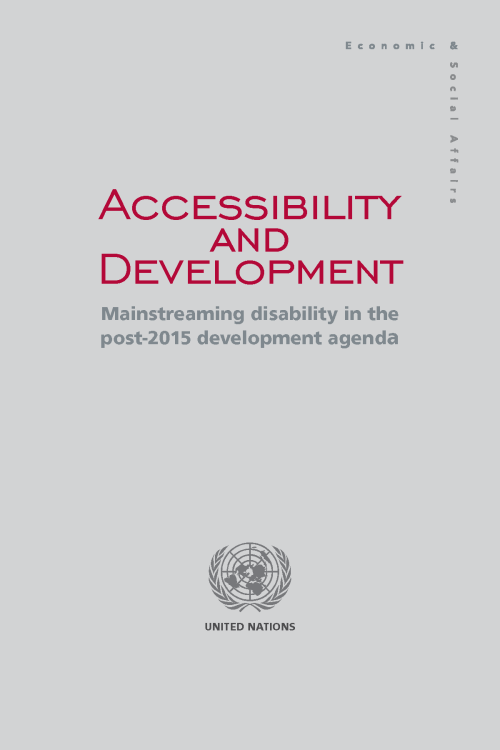
The publication reviews the concept of accessibility and its role in achieving inclusive and sustainable development. It propositions that accessibility be, not only a means and a goal of inclusive development, but also an enabler of an improved, participative economic and social environment for all members of society, including persons with disabilities.
Three key issues are addressed in the publication: (1) Accessibility in the context of human rights and development; (2) accessibility in policy and practice; and (3) accessibility and a disability-inclusive post-2015 development agenda.
The publication reviews good practices and lessons learned from both top-down and…
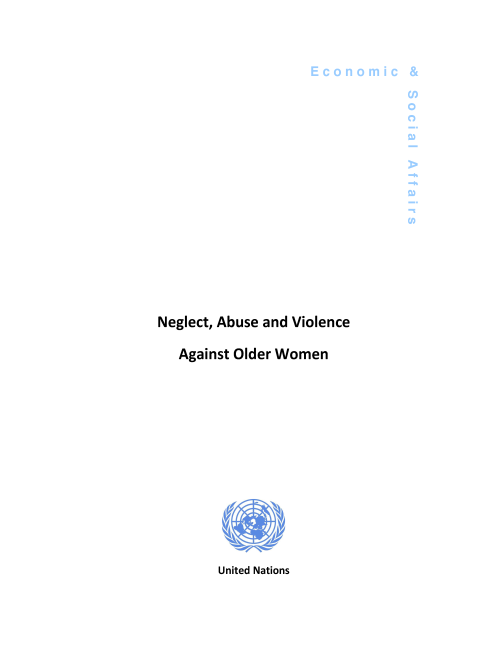
The objective of the Madrid International Plan of Action on Ageing (MIPAA) was the elimination of all forms of neglect, abuse and violence against older persons (MIPAA, 2002).
The United Nations Department of Economic and Social Affairs (UN-DESA), together with its focal point on ageing in the Division for Social Policy and Development (DSPD), began a discussion based on current research, available data and the terminology used in academic circles to describe and classify violence and abuse against older women. The majority of academic research and discourse has been conducted in developed countries, and agreement on terminology and meanings has—by no means—been clear or agreed.…
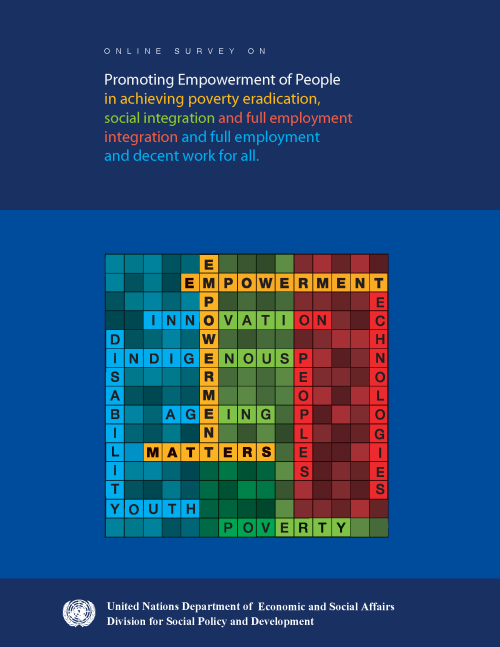
UNDESA-DSPD, from 8 August to 5 September 2012, conducted a global online survey to gather inputs for consideration by the 51st session of the Commission for Social Development (CSocD), which took place from 6 to 15 February 2013.
The survey enabled the public worldwide to respond to a set of questions that were related to the priority theme of CSocD on “Promoting empowerment of people in achieving poverty eradication, social integration and full employment and decent work for all”.
The responses collected and selected from the first question “Empowerment: What does it mean to you?” was published in a separate booklet.
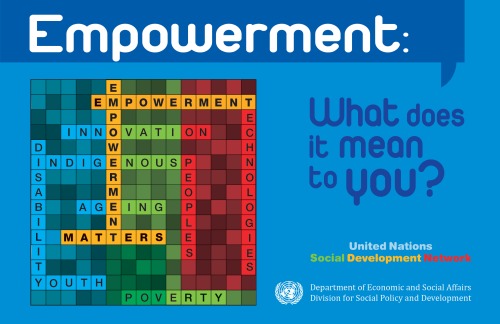
The “Definitions of Empowerment” represents a collaborative effort, made possible by the answers received from people all over the world on the Empowerment theme. Their invaluable contributions were essential for the preparation of the Empowerment Publication.
In order to collect people’s ideas and experiences, the Division for Social Policy and Development (DSPD) of UNDESA launched an on-line survey on “Promoting Empowerment of People”.
We were glad to receive tens and tens of responses from young individuals, persons with disabilities, older persons, and people working for various institutions and organizations committed to social development issues. Their keen interest…
 Welcome to the United Nations
Welcome to the United Nations